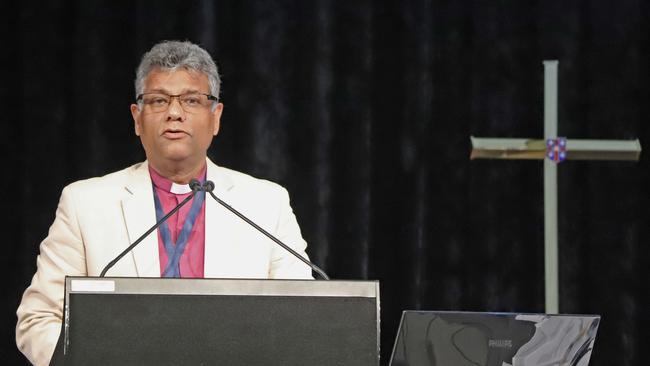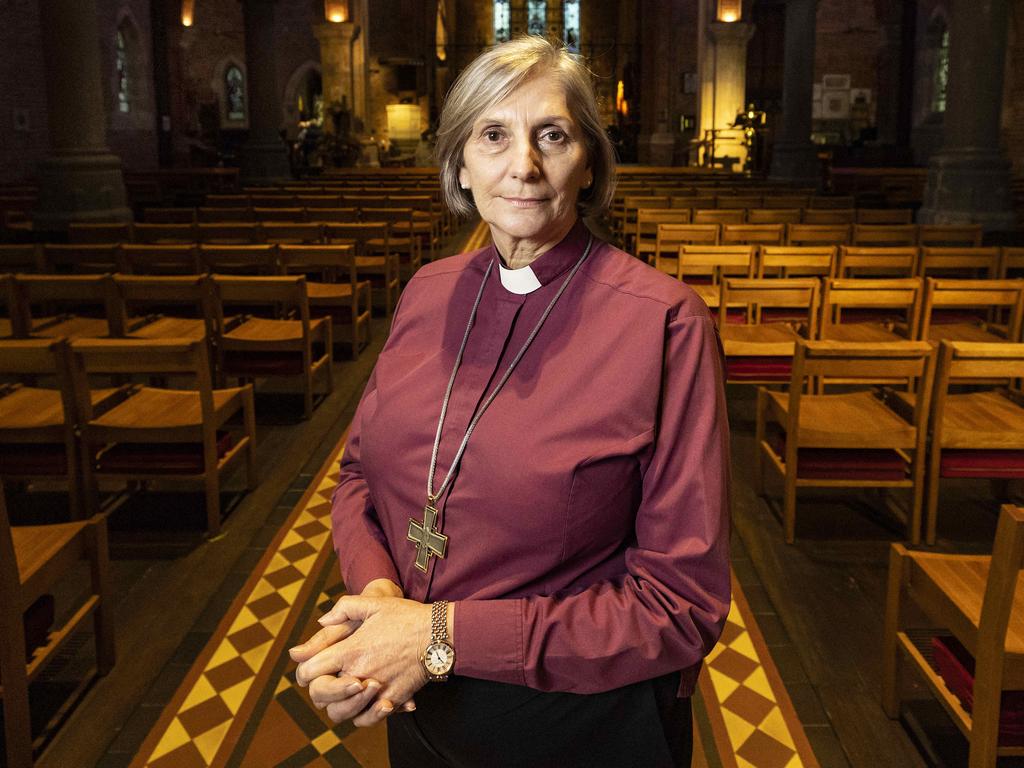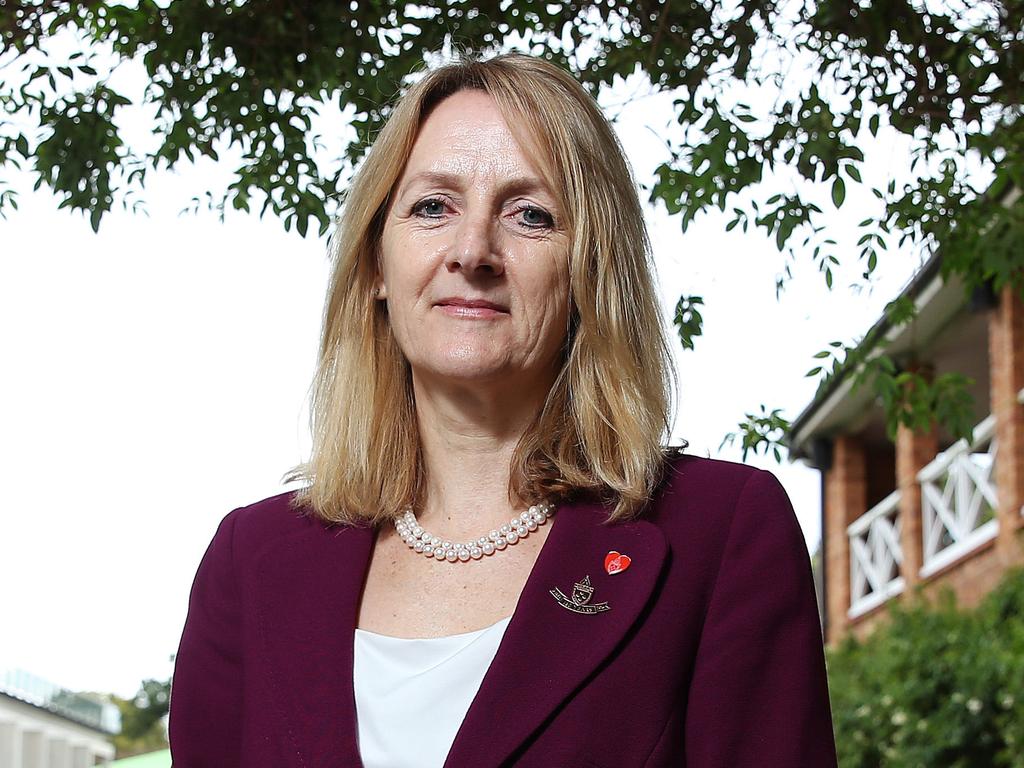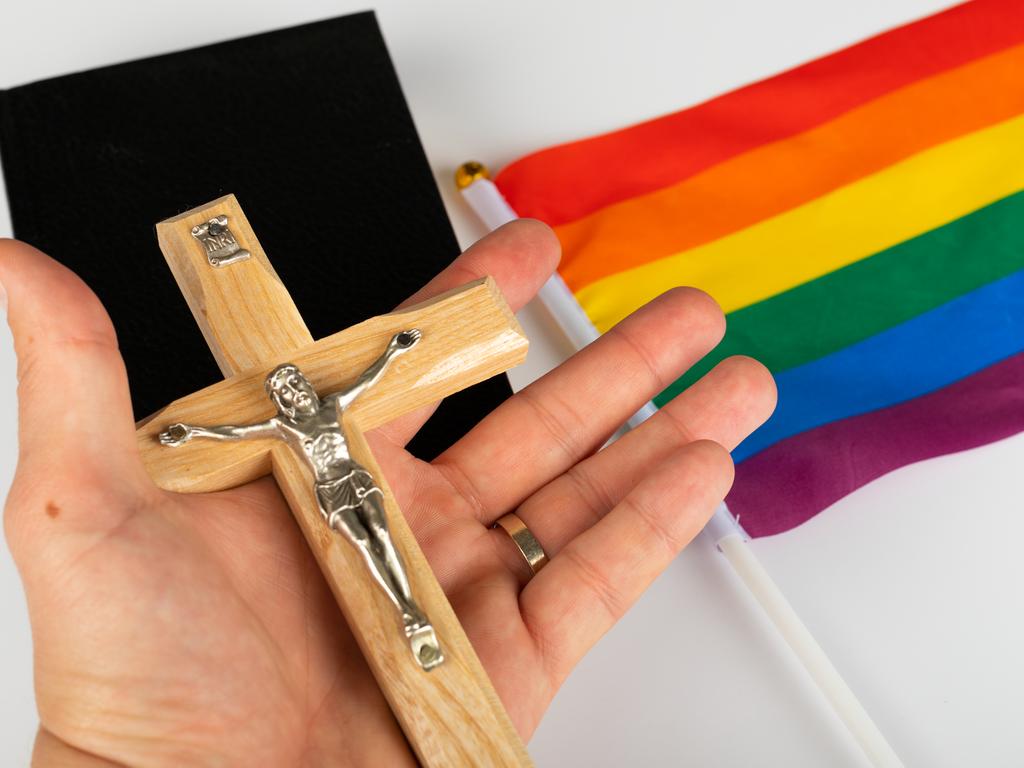Gay marriage vote divides Anglican Church
Church leaders have rejected a bid to restrict marriage to the union of a man and woman in a boilover at the General Synod.

The Anglican Church is teetering on the brink of a conservative walkout after church leaders narrowly voted down a bid to define marriage as being exclusively between a man and woman.
In a boilover at the first Anglian General Synod to convene since gay marriage became law in 2017, a 24-strong panel of metropolitan archbishops and senior diocesan bishops held out against the majority of clerical and lay delegates to sink the controversial motion. Even then, the two members of the so-called House of Bishops who abstained could have turned the vote that went down to the wire there, failing 12-10, after it sailed through the houses of clergy and laity on Wednesday.
In aggregate, the statement sponsored by the conservative Archbishop of Sydney, Kanishka Raffel, affirming orthodox church doctrine that marriage was of a man and woman and condemning ceremonies to bless gay nuptials, passed 133-86 before the bishops exercised their casting vote.
A bitterly disappointed Archbishop Raffel warned the church in Australia was at the “tipping point” that caused its counterparts in the US, Britain, Canada, Brazil and New Zealand to splinter over same-sex marriage.
Describing the situation as “perilous” for the church, he told The Australian: “What we have seen over the last 20 years or so in mostly Western churches is where people have lost confidence in the goodness and trustworthiness of God’s word as it has been expressed in Anglican liturgy and practice for 500 years … those churches have fractured. We don’t want that. But we know what has happened in many countries and I guess it is perilous in that sense.”
The chair of the Australian arm of the Global Anglican Future Conference, Bishop of Tasmania Richard Condie, said a shadow church had been set up as a “lifeboat” for those who left. Entire congregations and their priests could shift across to Gafcon’s nascent Diocese of the Southern Cross.
“I am not a prophet to say what I think will happen next, except to say what has happened everywhere else this bridge has been crossed,” Bishop Condie said. “People who hold a deep conviction about this matter have left their Anglican Church … because it is of such seriousness.
“I expect there will be people in the Anglican Church of Australia today who will feel that pressure.”
The Anglicans’ day of reckoning on same-sex marriage has been coming since Australians voted for it in a national plebiscite nearly five years ago and was put off twice when the usually triennial General Synod had to be cancelled in 2020 and last year because of Covid-19. Church conservatives backed by the wealth and numbers of the powerful Sydney Diocese fought tooth and nail to have the parliament-like assembly reinforce the orthodox position that only heterosexual couples could be wed by a priest.
But progressives argued that denying a blessing to gay couples who wanted their civil vows recognised was cruel and un-Christian and would leave the church out of step with mainstream culture and inclusive social values.
The infighting is set to continue, as conservatives reacted with anger and shock to the defeat. Some predicted the dioceses of the 12 archbishops and ranking bishops who voted against the same-sex statement would be the first to be hit by defections.
In a personal statement to the General Synod, Archbishop Raffel said the national church’s federated structure and processes were at risk. “We may very well become a church where every clergyman relates to his bishop in the 23 dioceses,” he told delegates.
“And in that case we ought to stop wasting each other’s time by gathering in this way.”
Speaking against the statement ahead of Wednesday’s vote, vicar Shane Hubner of St Peters Anglican Church, Box Hill, in Melbourne’s east, said the notion that marriage was the union of a man and woman was “deeply painful” for him to accept when he had two gay siblings.
He could not reconcile his experience with them and a statement seeking to deny God’s blessing. “It is deeply painful … to have discussions where I have to state that the church I serve does not recognise the blessing of God in their relationships,” he said.








To join the conversation, please log in. Don't have an account? Register
Join the conversation, you are commenting as Logout